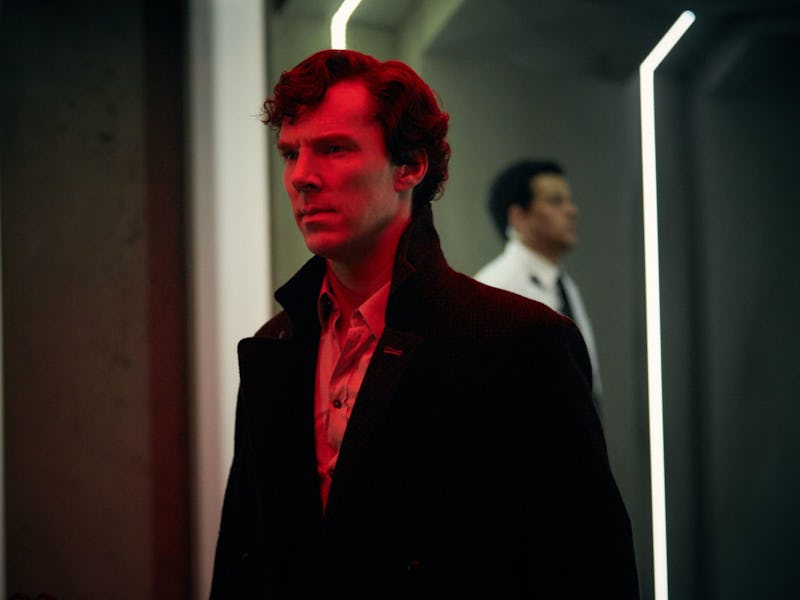Hopefully, "The Final Problem" Is the Final 'Sherlock' Episode
It's time to hang up the hat.

The finale of the fourth season of Sherlock was titled “The Final Problem,” and if we’re very lucky, it will indeed put the series to rest. When Steven Moffat and Mark Gatiss gave the world a contemporary version of Sir Arthur Conan Doyle’s famous detective back in 2010, it was a joyful cause for celebration. Now, with death and psychological darkness around every corner, any joy that these new adventures previously offered is almost completely absent. If this is indeed the final episode of the entire run of this version of Sherlock Holmes, it would be a mercy.
Very light spoilers for “The Final Problem” ahead.
At one point in the episode, Mycroft asks Sherlock if “banter” is appropriate considering the dire circumstances everyone is in. And it’s a good question. If one were to watch the debut episode “A Study in Pink,” and then turn around and watch this version of “The Final Problem,” they would be mystified as to where all the bantering fun had gone. Could this even be the same show? While Sherlock, John, and Mycroft are trapped in sicko prison devised by perhaps the most unearned deus ex machina in recent pop culture memory — their evil secret sister Eurus Holmes — the audience is left wondering if we even want them to escape.
While the episode demonstrated Steven Moffat and Mark Gatiss’s prowess at cleverly updating original Conan Doyle stories into miniature motion pictures (this time “The Musgrave Ritual” was given the cinematic treatment), the emotional stakes were so unevenly matched with the mythology that annoyance was a more likely emotional reaction than suspense. How did Sherlock convince his insane murderous sister Eurus to play nice in the end? How did she and Moriarty really rig all those traps up in five minutes, five years prior? Can we really believe John and Sherlock would go back to solving cases after all of that happened? Wait, Sherlock’s whole life is based on his best friend being murdered as a small child by his little sister because she was lonely?
In a recorded message at the end of the episode, Mary Watson says that it doesn’t matter who Sherlock Holmes and John Watson “really” are, and that the legends and the adventures are what matters. That much is true. Because, after watching “The Final Problem,” the best thing one can do is remember the good times with Benedict Cumberbatch and Martin Freeman’s versions of these characters. Or, better yet, open up a copy of the novel a Study in Scarlet right now, and discover a world where Sherlock Holmes and John Watson aren’t dangerously depressed, where the mysteries they are tasked with actually have real, viable, and enjoyable solutions.